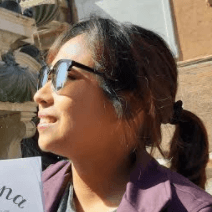SUMMARY
This is AI generated summarization, which may have errors. For context, always refer to the full article.
![[OPINION] No to the new Philhealth premium for OFWs](https://www.rappler.com/tachyon/r3-assets/612F469A6EA84F6BAE882D2B94A4B421/img/83F211DC7D864AECB5BFAEDB39B8A992/mandatory-premium.jpg)

On Labor Day weekend, overseas Filipino workers (OFWs) rallied on social media against the new premium contribution assigned to them by the Philippine Health Insurance Corporation (PhilHealth). A circular posted on PhilHealth’s official Facebook page on April 22 informed OFWs of their new mandatory payment schedule, which now amounts to 3% of their salary, and which would increase annually until 2025. This regulation was said to be under the Universal Healthcare (UHC) law, which aims to enrol all Filipinos under the National Health Insurance Program.
While the purpose of the UHC law itself seems good, and is a big leap towards trying to achieve health equality, the means to support the funding by making OFWs “direct contributors,” obliging them to pay a certain amount, and holding them liable for non-payment (“a member who fails to pay the premium after the due set by the corporation shall be required to pay all missed contributions with monthly compounded interest”) is unfair and unjustifiable.
When they were drafting the law, did they even bother to ask OFWs around the world if they agreed to this obligation? The government has embassies around the world that could have reached out to communities of OFWs to ask for their opinion on this matter. That would have been the fair step to take in a democratic society. But most of us only found out about this now.
Another matter of concern is using the POEA (Philippine Overseas Employment Agency) to police OFWs by not issuing the OEC (Overseas Employment Contract), which serves as clearance to exit the country, to OFWs who do not pay their PhilHealth premiums.
The government already knows about the struggles of OFWs. They should have considered that some would not be able to send monthly remittances to their families, since some have employers are actually withholding salaries from them. Some are also struggling to live abroad to begin with, and we also have to keep in mind that many have no choice but to go abroad because there is no work back home. While we OFWs find personal solutions to national problems such as poverty and unemployment, we expect the government to look out for our welfare, too – not to look at us as “milking cows.” (READ: Rappler Talk: Taiwan OFW Linn Ordidor on free speech and dodging deportation)
In response to the growing petition to amend or abolish the mandatory payment, PhilHealth announced that it has adapted a “flexible payment scheme” to allow OFWs to pay within the year. Then, in a conflicting statement from the Malacañan, the President has issued a directive making the payment voluntary for OFWs and suspending collection of payments while we are still in a pandemic. Flexible payment schemes, voluntary payments, and suspension of payments? Does this mean we still need to pay the premium once they announce that the crisis is over? None of this is clear to us.
The call of OFWs around the world is to amend the regulation to make the premium non-mandatory, and not just a temporary suspension of payments. And if they are going to make it voluntary in the long term and will issue a new table for contributions, the premium should not go over the previous P2,400 per year for OFWs. Plus, the OEC should never be used as a tool to penalize OFWs for failure of payment.
Lastly, alternative ways to fund the UHC are the proper collection of taxes from multinational and other high-earning companies, and eliminating corruption in the system. And, of course, we must always go back to basics: invest in proper nutrition for citizens from an early age (to produce a healthy population), provide good sanitary living conditions (to cut the morbidity and mortality rate), and provide decent jobs (to make sure everyone can enrol in the health insurance system). – Rappler.com
Elisha Gay C. Hidalgo is a Filipina cultural mediator working in Italy. She is the wife and daughter of OFWs, and a mother of 3 young Filipino immigrants.
Add a comment
How does this make you feel?
There are no comments yet. Add your comment to start the conversation.